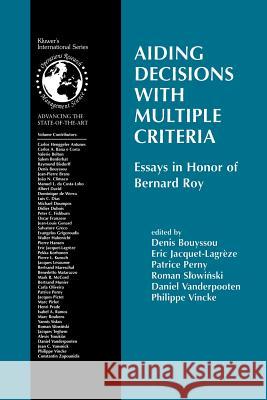Aiding Decisions with Multiple Criteria: Essays in Honor of Bernard Roy » książka
topmenu
Aiding Decisions with Multiple Criteria: Essays in Honor of Bernard Roy
ISBN-13: 9781461352662 / Angielski / Miękka / 2012 / 558 str.
Aiding Decisions with Multiple Criteria: Essays in Honor of Bernard Roy
ISBN-13: 9781461352662 / Angielski / Miękka / 2012 / 558 str.
cena 806,99
(netto: 768,56 VAT: 5%)
Najniższa cena z 30 dni: 771,08
(netto: 768,56 VAT: 5%)
Najniższa cena z 30 dni: 771,08
Termin realizacji zamówienia:
ok. 22 dni roboczych
Bez gwarancji dostawy przed świętami
ok. 22 dni roboczych
Bez gwarancji dostawy przed świętami
Darmowa dostawa!
Aiding Decisions With Multiple Criteria: Essays in Honor of Bernard Roy is organized around two broad themes:











